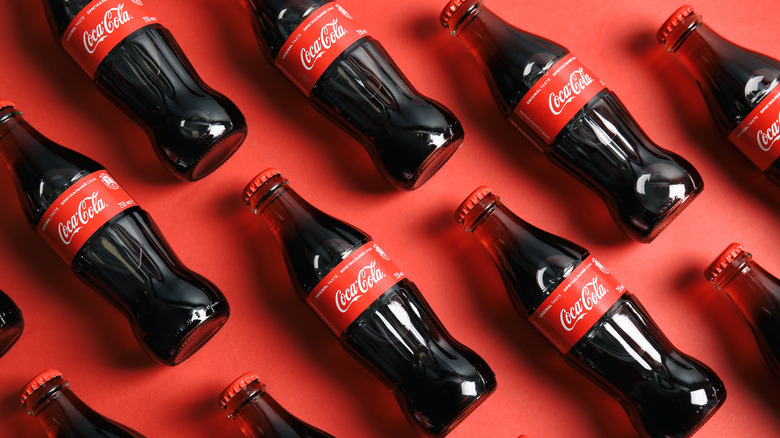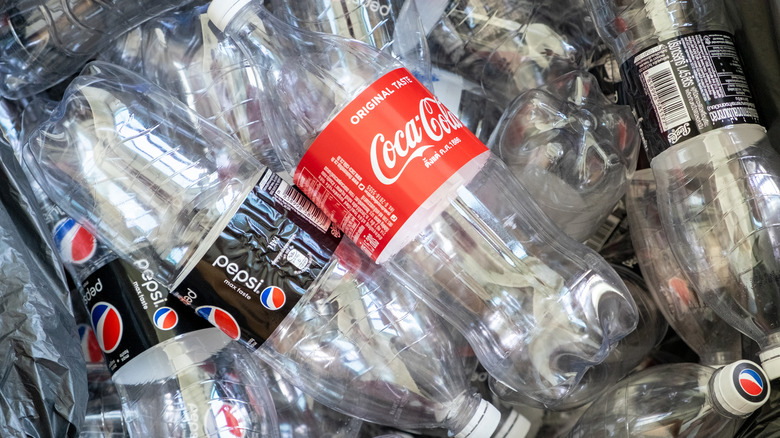Coca-Cola Wants You To Refill Your Soda Bottles. Here's How It Will Work
On February 10, the Coca-Cola company announced its commitment to tackling the waste caused by its plastic and glass bottles. By 2025, all consumer packaging will be recyclable with a further goal of making 50% of all Coca-Cola packaging recyclable by 2030. Similarly, the company intends to equalize the number of cans and bottles it produces with those it recycles.
A big part of this idea is that an increasing number of Coca-Cola products would be refillable at fountain dispensers. Basically, it would work like in a fast-food joint where you bring a cup for the machine to fill. In this case, though, it would be a reusable cup that you own for longer than a takeout meal. Coca-Cola hopes that 25% of all bottles will be used this way by 2030.
This "innovative" idea is, as Fast Company notes, simply a return to the norm before the mass production of cheap plastic. The upside of a single-use bottle is that it is ideally only made one time, as opposed to being made anew every time someone wants a Coke or other beverage. However, it will also require a restructuring of how stores and consumers operate. Still, with Coca-Cola's Freestyle soda machines already making their way to college campuses years ago (in 2016), it would seem that a new norm has been in the works for some time.
Coca-Cola responds to criticism
Coca-Cola's decision to push for a more sustainable model for its soda bottles may have been informed by the ire they were beginning to draw from environmental groups.
Last October, Break Free From Plastic released its annual report that noted — for the fourth time in a row — Coca-Cola was the worst corporate plastic polluter. Per the report, "brand audits recorded more Coca-Cola products than the next two top polluters combined — as has been the case each year since 2019 — suggesting that Coca-Cola's pledge is having little impact on the environmental pollution caused by their products." The report then went further, stating that rather than cleaning up plastic messes, the company should redesign its product and method of bringing it to the consumer.
Lo and behold! A few months later, Coca-Cola did just that. In doing so, it has also presented a model for the rest of the food industry as well: to think beyond recycling. For example, when Taco Bell announced it would recycle its sauce packages, Greenpeace laid into the fast-food chain by asking why the packages were needed instead of sauce dispensers or some other method that did not require making more and more packets.
Because of this difference, environmental groups are cautiously laudatory. "We hope that other companies will follow Coke's leadership and set reusable packaging targets," Emma Priestland, Break Free From Plastic's global corporate campaign coordinator, said to Reuters.

